Tata Steel: Port Talbot steelworks given £500m by UK government
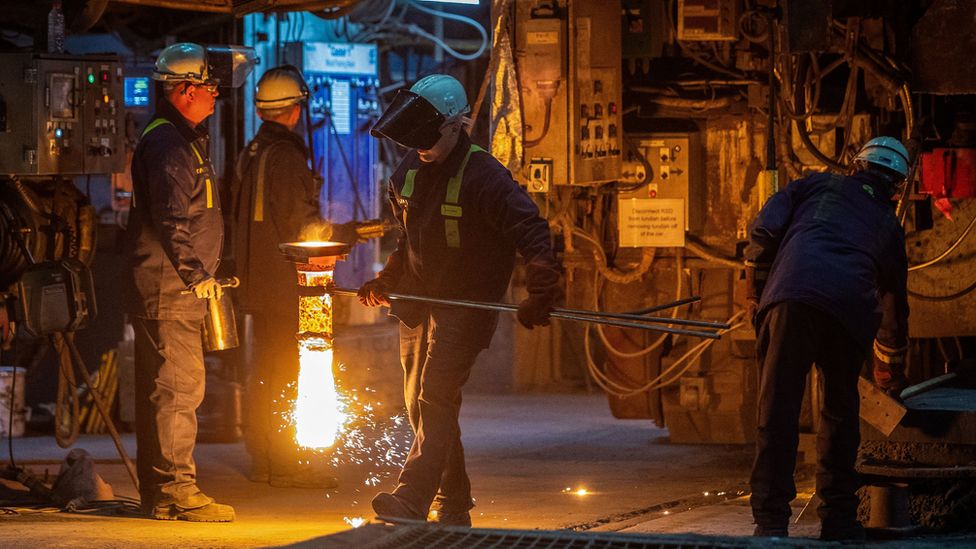
Port Talbot’s steelworks will be given up to £500m by the UK government in a bid to keep the plant open and produce steel in a greener way.
Tata steel will add £700m of its own as it invests in cutting emissions. It has asked ministers to provide a bigger chunk of the cost.
But the package could mean as many as 3,000 job losses across the UK.
The site in south Wales is home to Britain’s biggest steelworks.
The steelworks features two blast furnaces working around the clock to produce steel used in everything from tin cans to submarines.
But the site is also one of the UK’s largest polluters.
- Anxious steelworkers await job news – Drakeford
- The race across Europe to build green steel plants
The UK government has agreed to fund the installation of new electric arc furnaces for steelmaking.
The £1.25 billion furnaces are expected to be up and running within three years of getting regulatory and planning approvals.
The company has warned there will be a “transition period including potential deep restructuring” at the plant.
The UK government said the deal “has the potential to safeguard over 5,000 jobs across the UK”.
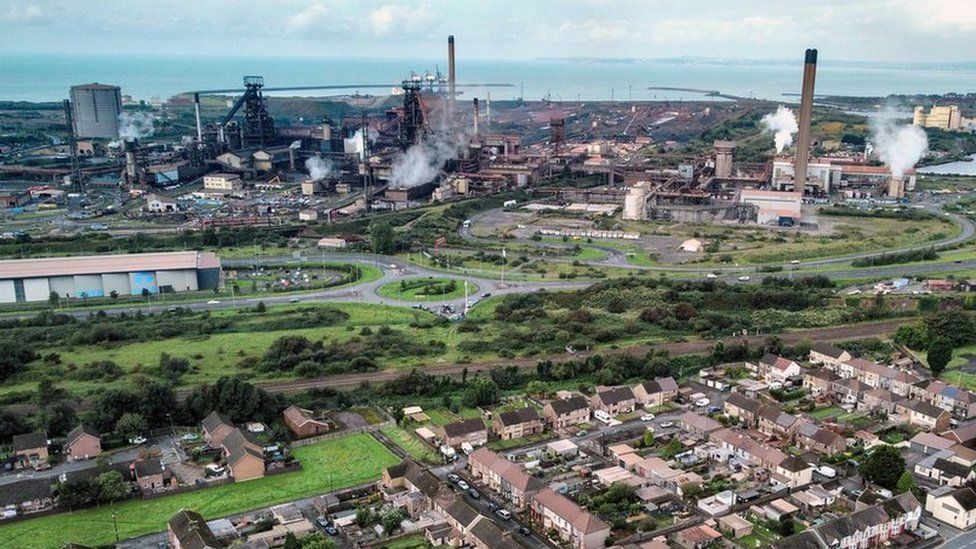
Unions have previously said the move to the new less labour-intensive furnaces could lead to thousands of job losses.
The UK government said the transition is expected to reduce the UK’s entire business and industry carbon emissions by 7%, Wales’s overall emissions by 22% and the Port Talbot site’s emissions by 85%.
It also said the plan to replace existing coal-powered blast furnaces at the site would “reduce the UK’s entire carbon emissions by around 1.5%.”

Analysis – Gareth Lewis, BBC Wales political editor
The future of the giant steelworks at Port Talbot has been right at the top of the Welsh government’s list of concerns.
But it is the UK government which needed to make funding decisions.
That decision has now come, but with that clarity comes yet more uncertainty, especially for thousands of workers.
The area’s MP and MS are unhappy at a lack of consultation with unions and think Tata’s de-carbonisation plans are too narrow, which only widens the impact on jobs.
The pressure on both UK and Welsh governments to make a success of both the Celtic Freeport and Floating Offshore Wind – two alternative forms of employment – now grows.
For years there have been question marks hanging over the UK’s biggest steelworks. Even with an answer today, there are still many more questions demanding answers of their own.

Kemi Badenoch, business and trade secretary for the UK government called the deal “an historic package of support from the UK government”.
Asked whether the job losses are a price worth paying, she told reporters: “That’s completely the wrong way to look at it.
“We are saving jobs which would have been lost. Without this investment we would probably have seen the end of steelmaking certainly in this part of the country, possibly in the whole of the UK.”

Rishi Sunak said people whose jobs are at risk should be “reassured” that there is a £100 million transition plan in place to help them retrain.
“Obviously, there will still be some people affected and I know this will be an anxious time for them.”
Natarajan Chandrasekaran, Tata group chairman, described the agreement as “a defining moment for the future of the steel industry”.
“The proposed investment will preserve significant employment and presents a great opportunity for the development of a green technology-based industrial ecosystem in south Wales.
“We look forward to working with our stakeholders on these proposals in a responsible manner.”
Who owns Tata Steel?
Tata Steel is owned by the Indian conglomerate Tata Sons.
The company says 66% of the equity share capital of Tata Sons is held by philanthropic trusts, which support education, health, livelihood generation, and art and culture.
What is decarbonisation?
Decarbonisation means the reducing of green house gas emissions produced by burning fossil fuels.
These contribute to climate change.
Steel is usually made in a process that starts with blast furnaces. Fed with coking coal and iron ore, they emit large quantities of carbon dioxide and contribute to global warming.
The production of steel is responsible for around 7% of the world’s greenhouse gas emissions.
Tata Steel are swapping fossil fuel-power for electric in an effort to curb their carbon emissions.
Stephen Kinnock, Labour MP for Aberavon, said the investment to decarbonise was long overdue, but that he was concerned that ministers did not “adequately consult steel unions”.
“At the heart of this failure is the narrow focus on electric arc furnace (EAF) technology, which will not only result in more job losses than necessary, but which simply cannot produce the qualities and grades of steel needed to meet the full spectrum of Tata’s customer base,” he said.
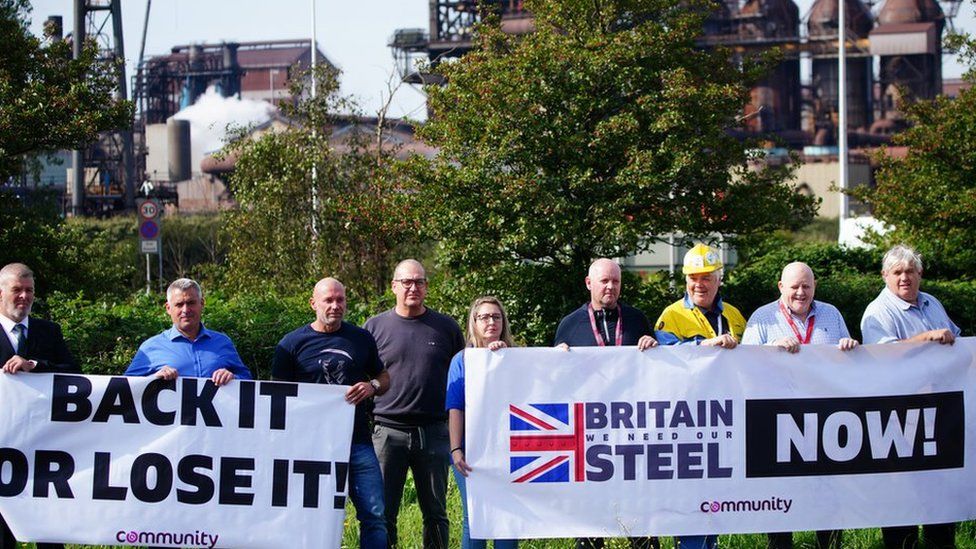
David Rees, MS for Aberavon, said Port Talbot has a “proud history of steel making and the loss of its blast furnaces in the years ahead will see an end to traditional steel making in Wales”.
He added: “Also, we cannot hide from the fact that this pathway to decarbonisation will see many steelworkers lose their livelihoods, creating hardships for families across our communities.”
Jonathan Reynolds, shadow business and trade secretary, said: “Only the Tories could spend £500 million of taxpayers’ money to make thousands of British workers redundant.
“Britain needs an industrial strategy that invests alongside industry delivering a return on taxpayers’ investment whilst protecting our national capabilities and workforce.”
Unions hit out at the announcement, saying it was a “devastating blow”.
Unite described the plans as a “disgrace”, with general secretary Sharon Graham saying: “These plans are disgraceful, short-sighted and lack ambition.”
Paul Nowak, TUC general secretary said: “This is a devastating blow for workers at Port Talbot.”
Alasdair McDiarmid, assistant general secretary of the Community trade union, told the BBC Radio 4 Today programme it was “extremely disappointed and angry” at the decision.
Earlier in the programme he said: “We believe that Tata and the government’s focus has been on rushing through the cheapest and easiest deal rather than the best deal for our industry, for the workforce and for the country.”
The Welsh government said: “This is a very worrying time for the whole community and it is essential Tata now has a meaningful consultation with employees and their trades unions about these proposals.
“While today’s announcement contains significant investment for the longer term, it is inevitable that Tata employees, and their families, are focused on the impact it will have on jobs in Port Talbot and Tata’s downstream facilities.”
Luke Fletcher MS, and Plaid Cymru’s economy spokesperson said: “We are looking at the biggest challenge that is going to face the steel industry for a generation in terms of needing to decarbonise.
“But this cannot be at the expense of the very people who keep our steel industry going – any compulsory redundancies would be a hammer blow for Port Talbot and for Wales.”
Related Topics
- Wales
- Steel industry
- Port Talbot
- Tata Group
-
Anxious steelworkers await job news – Drakeford
-
3 hours ago
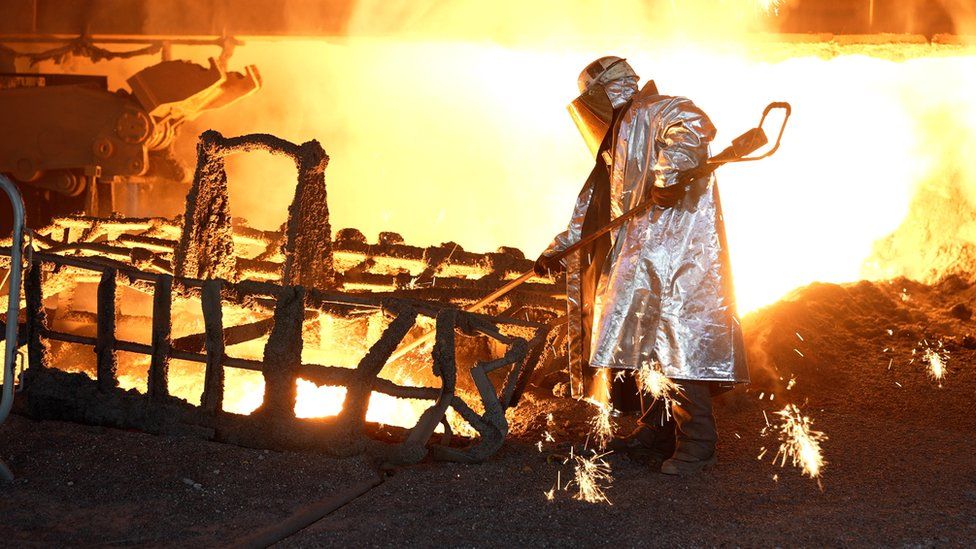
-
-
Blood, sweat and steel
-
18 March 2016
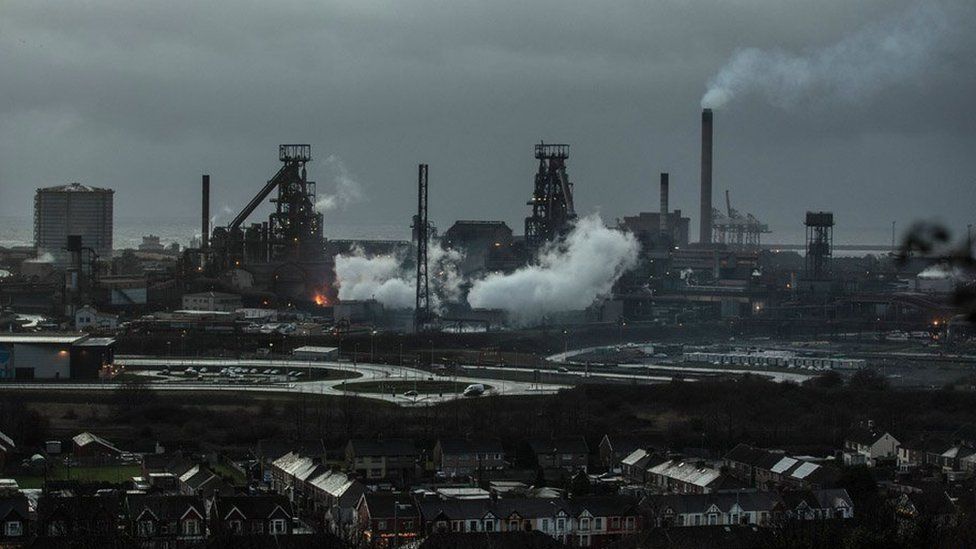
-
-
The race across Europe to build green steel plants
-
17 February
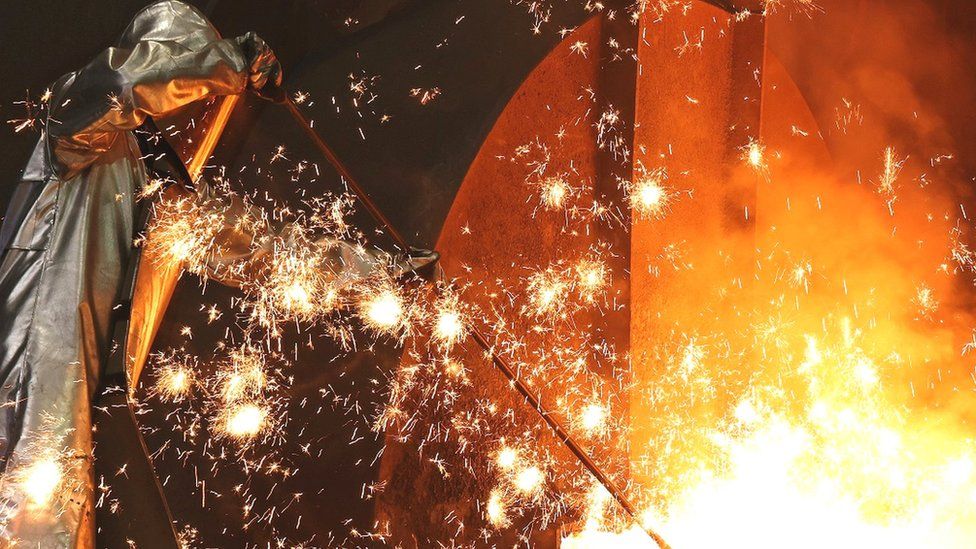
-
Published at Fri, 15 Sep 2023 12:15:38 +0000
